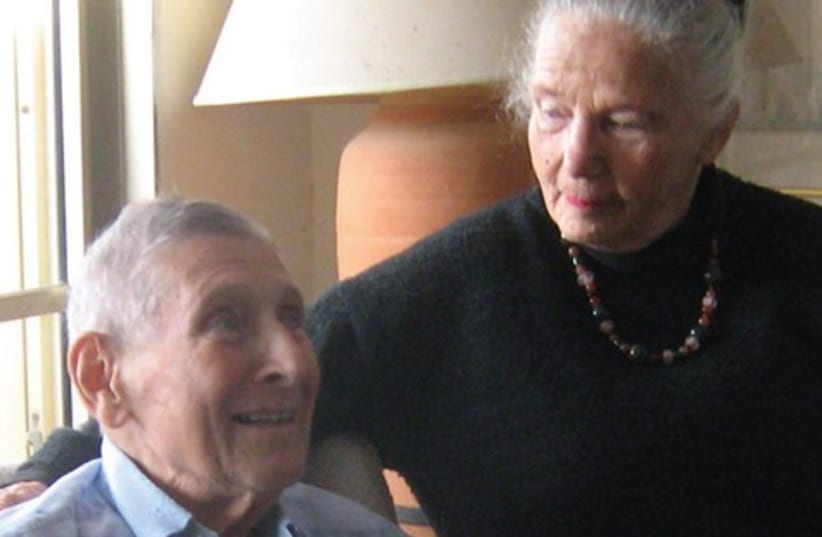THE SECOND COMING Their aliya in 1973 was the fulfillment of a family dream for Dick. His grandfather had been a founder of the Cleveland Zionist society and the family were Zionists and observant Conservative Jews. “In 1976 we planted a grove of trees at Shoresh in the name of my grandfather and each of our children planted a tree there,” says Dick.“We were motivated by the Six Day War,” adds Susan. “We had so many friends who were in danger here, how could we just sit there and watch and worry?” By the end of 1973 when they finally made aliya, one of their daughters was already living in Jerusalem.One son was in the IDF and was wounded in the Yom Kippur War.
ON ARRIVAL The Rosenbergs returned to Haifa where Dick was a doctoral candidate in the Technion Faculty of Industrial Engineering and Management. He received his doctorate in behavioral science.. He continued teaching and consultancy work there well beyond retirement age.Susan confesses her moments of panic on the journey: “We traveled from Italy by ship and the night before we docked in Haifa I suddenly got scared, what had we done.” However arrival was homecoming and they were welcomed by their son and daughter and their many old friends.“I was euphoric,” says Susan, whose son had warned her that the first year of aliya would be one of “manicdepression.”FAMILY The Rosenberg’s third child made aliya with them and the other two sons spent time here and in the US.Tragically, their youngest son died in 2006 and is buried here where his children and grandchildren live.A further tragic blow to the family came a year later when a grandson was killed in a traffic accident on his way to the airport to join the family for his father’s memorial. He is buried next to his father in Lehavim in the South, a sad pilgrimage for the family on their annual remembrance days.Susan and Dick have become more Orthodox over the years even though Susan was discouraged by the Orthodox establishment. Their extended family ranges from haredi to totally secular. “We all keep in touch by telephone and e-mail and frequent visits,” says Susan.Dick described his weekly Gemara lesson by telephone with his yeshiva teacher grandson in Brooklyn.
SOCIAL LIFE AND HOBBIES Susan is a gifted poet and actress. She started writing poetry in third grade and soon after aliya she joined Voices Israel Poetry in English Society and took over as secretary in the early 1980s. “At the first meeting I attended I was very overwhelmed by these talented poets,” says Susan, but since then she has won prizes in the Reuben Rose Memorial Competition and had poems published in the annual Voices anthology. She has had two books of poetry published.Susan was also one of the founding members of Haifa English Theater. She had acted in the Indiana Community Theater and brought her thespian skills to many of the plays produced for HET.Dick is a talented pianist and a beautiful Steinway grand graces their living room. “I attended a music conservatory when I was young,” he says, “but one day I came to the conclusion that I was reasonably good but not outstanding.” He enjoys playing and singing and was formerly in the Haifa Chamber Choir.Dick’s physical disability has slowed down their social life and Susan reflects sadly that they have lost many old friends as the years go by; others have moved further away to retirement homes.Dick spends his time preparing for his weekly Gemara lesson and teaches a Bible class to a small group of women.“We have no regrets,” says Susan as she and Dick sit close together holding hands. “Israel is home and we would not want to live anywhere else in the world. We feel very strongly that this country’s destiny, our people’s destiny and ours is here.”
